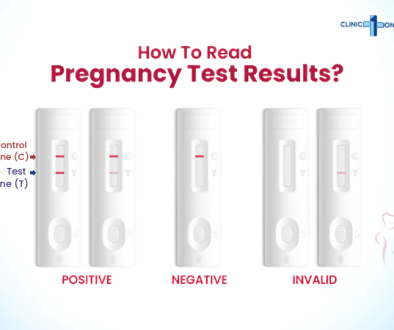Everything you should know about missed periods

Last updated on June 9th, 2021 at 09:24 am
The menstrual cycle generally lasts about 30 days and if you are not having a period for 6 weeks after the last one, you could consider it to be a missed period. Missing a period can be alarming, but there could be a simple explanation for it.
While there could be several reasons why you can miss your period but some simple yet vital causes could be the increase in your stress level, change in your diet, or exercise routine.
Nevertheless, if you are not having a period for 40 days and more then make sure to check on your doctor and get professional help. Since this may also be pointing towards a sign of a larger underlying issue.
Here are 10 prominent reasons why you may miss your period.
1. If you are stressed out

As our stress response is rooted in the part of the brain namely the hypothalamus, that governs all aspects of human reaction when in danger. This may be the reason why when we are at high-stress levels, our brain starts on the “fight or flight” mode even though we are not getting away from a predator in this day and age.
This is an automatic response of the part of the brain, called the “hypothalamus” which secrets hormones that eventually suppress all the functions of our body that are not pertinent to escaping an imminent threat including the functions of our reproductive system.
Thus this is the reason why you might miss the ovulation cycle and temporarily miss the period while you are under high levels of stress.
2. If you have lost or gained weight

Drastic changes to body weight are also one of the vital reasons to miss periods in women. This is so because changes in body weight are directly correlated to body fat which in turn can bring about hormonal imbalances.
Moreover, severe calorie restrictions might also affect the part of the brain namely the “endocrine system” that gives instructions for the production of reproductive hormones. And when this channeling of information is disrupted it could negatively affect the production of reproductive hormones, which in turn affects the ovulation cycle resulting in you missing your period.
3. If you have increased your workout intensity

If you are burning out more calories as a result of your demanding exercise routine, you could likely miss your period. This is because you wouldn’t have enough energy left for all of your systems to function effectively.
This would consequently lead to hormonal imbalance that would in turn throw you off track with regards to your menstruation cycle.
Nevertheless, your period resumes as soon as the calorie intake is met so that your body could invest sufficient energy into your reproductive system.
4. If you have polycystic ovary syndrome

Polycystic Ovary Syndrome (POS) is the syndrome that refers to the condition where there is an imbalance in reproductive hormones. POC’s are often characterized by missed or inconsistent periods or periods that could disappear altogether.
Some of the symptoms that include are excess body hair, acne on the face or body, thinning of the hair, excess weight gains or trouble losing weight, dark patches on the skin especially under the neck or breast, skin tags under the neck or armpits, and infertility.
If you have one or a few of these symptoms and are missing your periods, then you might want to consult your doctor because you could be having polycystic ovary syndrome.
5. If you are using hormonal birth control measures

Using pills for birth control is a regular practice as it makes the periods go regular. But sometimes it might also have an opposite effect especially for the first few months of taking the pill or when someone stops the use of the pill after long-term use.
This is because your reproductive system can go haywire for the first couple of months as hence you may miss your period until your body and its hormonal levels settle down to the normal baseline.
6. If you are in early menopause

When your ovaries stop working before the age of 40, it is called early menopause or medically called premature ovarian failure. This happens when your ovaries do not produce enough estrogen to continue the cycle.
A late or missed period could simply be the early sign of premature ovarian failure where you might experience night sweats, hot flashes, and trouble sleeping.
Other symptoms may include vaginal dryness, decreased sexual desire, trouble concentrating, and inability to get pregnant.
7. If you are in perimenopause
The time leading up to your actual menopause i.e. (the mid to late forties) is called as perimenopause period. Perimenopause usually lasts for about 4 years before your period stops completely.
And in this time you could usually miss your usual period cycle that can unexpectedly resume in the following months. To sum it up, periods may just usually come heavier or lighter than expected in the perimenopause period.
8. If you have a thyroid condition

The thyroid gland that is located in the neck has much control over many biological processes including the menstrual cycle. Certain conditions that dysregulate this gland and its functioning as is the case with “hypothyroidism” and “hyperthyroidism” might dysregulate the menstrual cycle causing irregularities.
Hyperthyroidism in particular where the overactive thyroid gland produces more of the hormone called “thyroxine” increases the metabolism of the body so that you might have missed period or period may disappear for several months.
Other symptoms of having thyroid conditions may include increased rate of heartbeat, appetite and weight changes, nervousness and anxiety, tremors in the hand, fatigue, changes in your hair, sleep disorders.
9. If you have another chronic condition

Menstrual irregularities could also be the outcome of certain pre-existing health conditions such as celiac disease, or diabetes.
Celiac disease is an auto-immune disease that affects the digestive system. People suffering from this disease when ingesting gluten in their diet, a series of auto-immune responses are activated where the immune system reacts by attacking the lining of the small intestine.
This results in damage in the digestive tract affecting the normal absorption of nutrients in the body leading to malnutrition, hormone production, and consequently missed periods and, and other menstrual irregularities.
People with type 1 and type 2 diabetes may also have signs of menstrual irregularities when the blood sugar levels are out of balance.
10. If you are pregnant

If you think you missed your period while at the same time that you might have conceived, chances are that you are pregnant and you might want to take a pregnancy test. Try to take a test a week after your period was supposed to start because taking the test too early may result in false-negative results.
Similarly, other signs of pregnancy include painful and tender and swollen breasts, nausea and vomiting, and fatigue.
Amenorrhea:
Condition when you miss your monthly periodic cycle in terms of bleeding, apart from the underlying conditions such as pregnancy or menopause could be a sign that you have amenorrhea. In other words, amenorrhea is a medical condition where you miss your periods. There could be two types of amenorrhea classified about their medical condition.
Firstly, those women who haven’t started their monthly cycle even after the age of 16, are classified as having primary amenorrhea. Females suffering from primary amenorrhea are likely to have some problems in their reproductive tract.
While on the other hand, if you stopped having your periods for 3 consecutive months after having regular periodic cycles for 9 previous months, it is classified as secondary amenorrhea. This type is observed to be more common in peoples.
The causes of this disease are quite similar to the causes for the missed periods and hence the treatment lies in the underlying condition that is inducing it. But make sure to consult your physician before adopting any treatment plans or medication.
Conclusion
Most women have (11-13) menstrual periods in one year but this could be different for you. You may have a lesser or more number of periods and hence the number of cycles is pertinent to you and hence must be viewed in terms of what is normal for you. Generally speaking, menstrual cycles can fluctuate over the start and during the ending when you reaching to your menopause.
But make sure to talk to your doctor if you are not having your cycles more than 40 days or 6 weeks of the previous cycle because it could be the sign of other illness that may be accompanying you.
References:
Corinne Osborn and Meredith Walls (2019), 10 Reasons You Might Miss a Period, Health line
Valinda Riggins Nwadike (2020), Everything you need to know about amenorrhoea, Health line Magazine
William H. Blahd (2020), Missed or irregular periods, Michigan University of Medicine,


